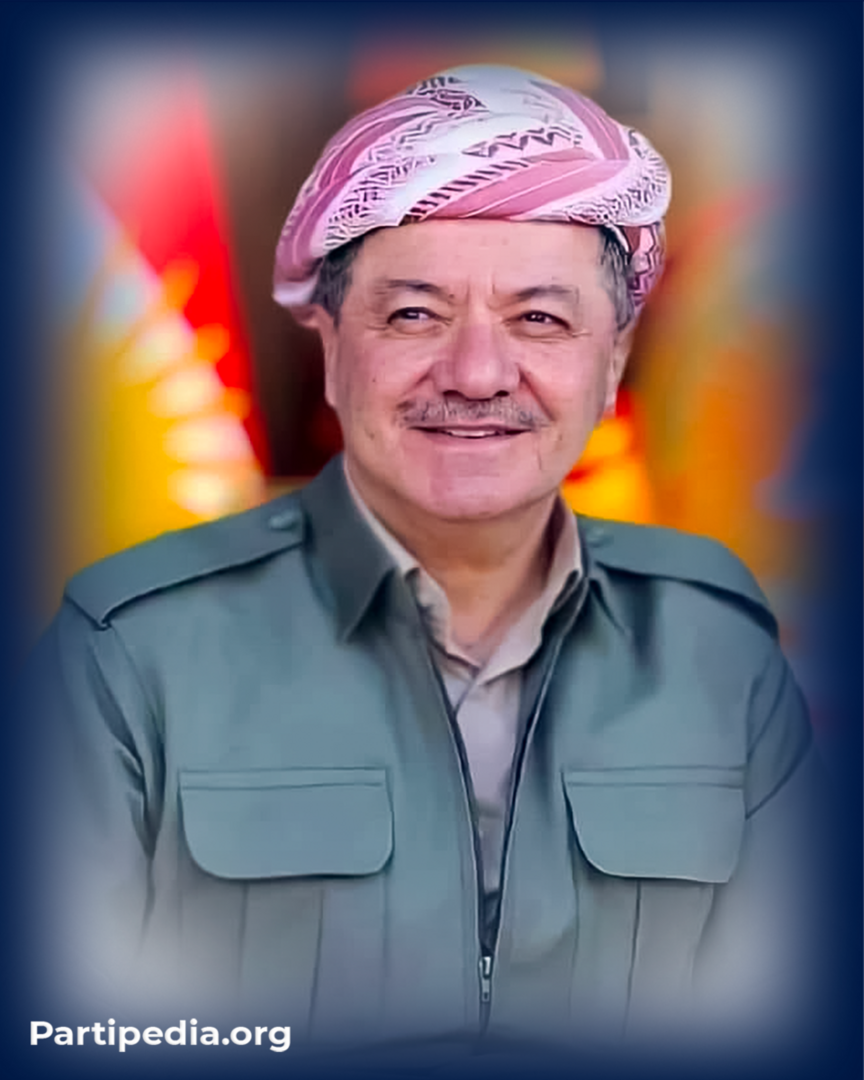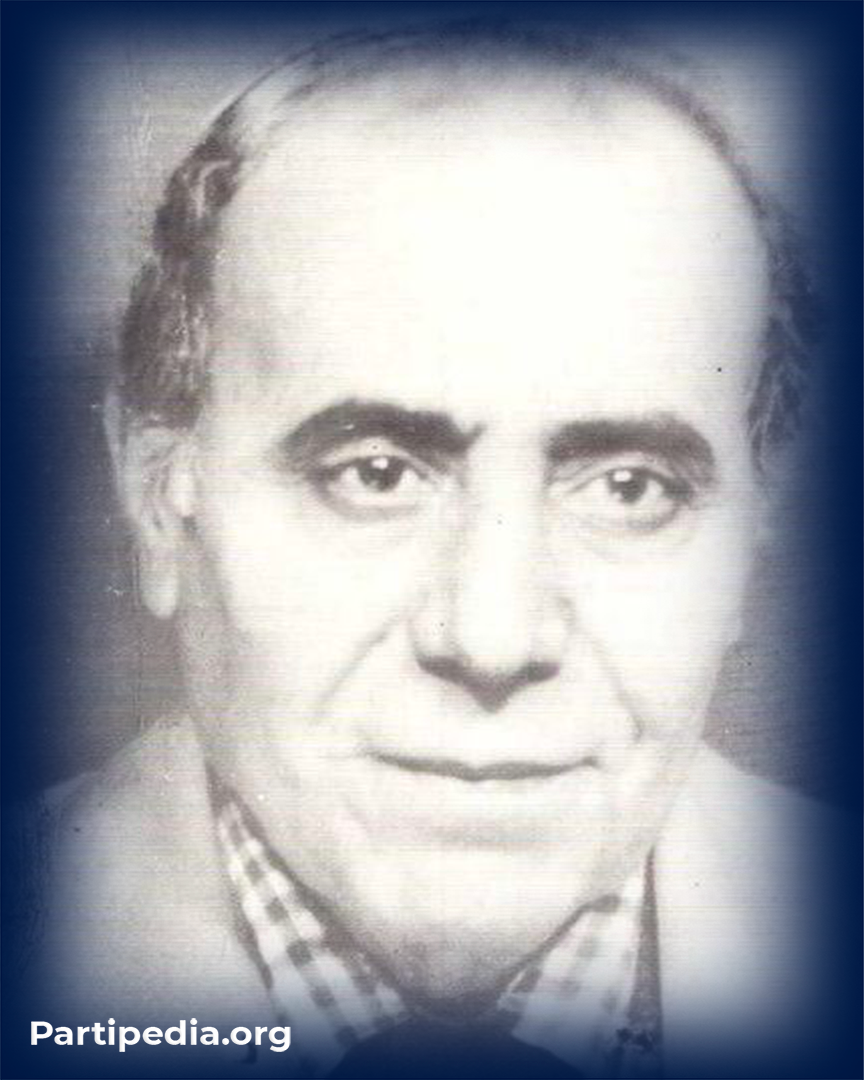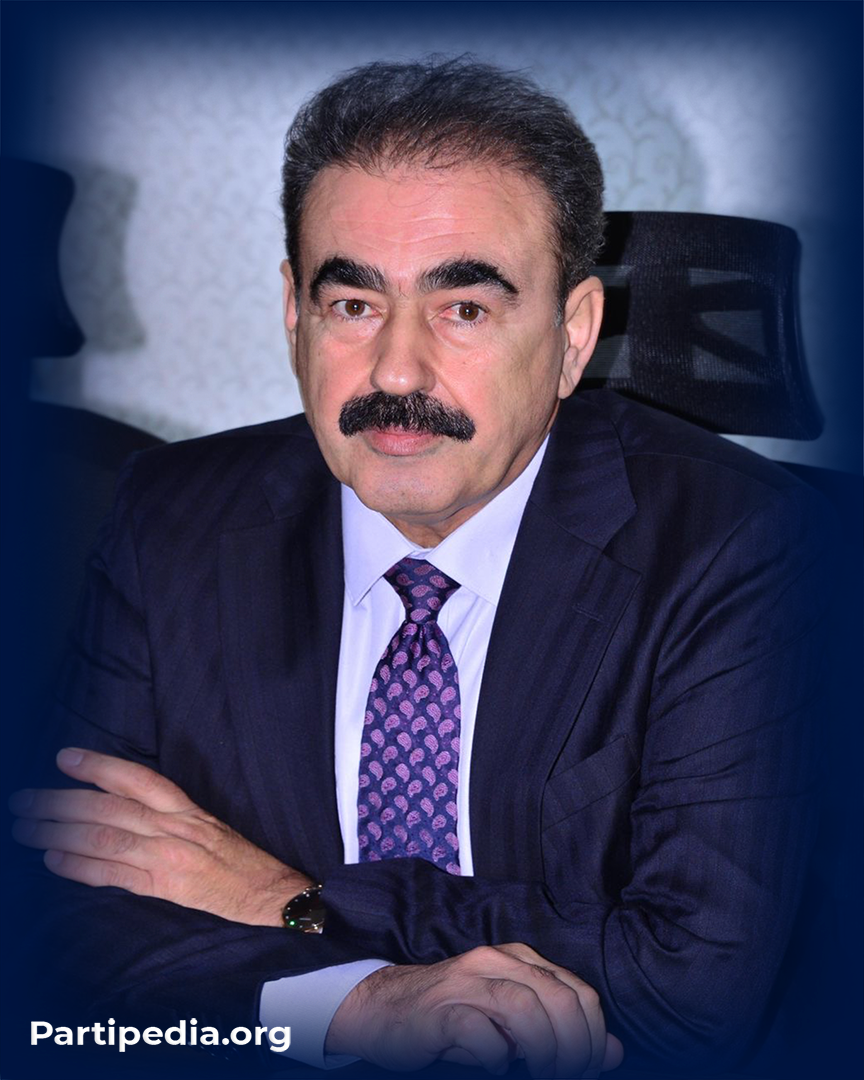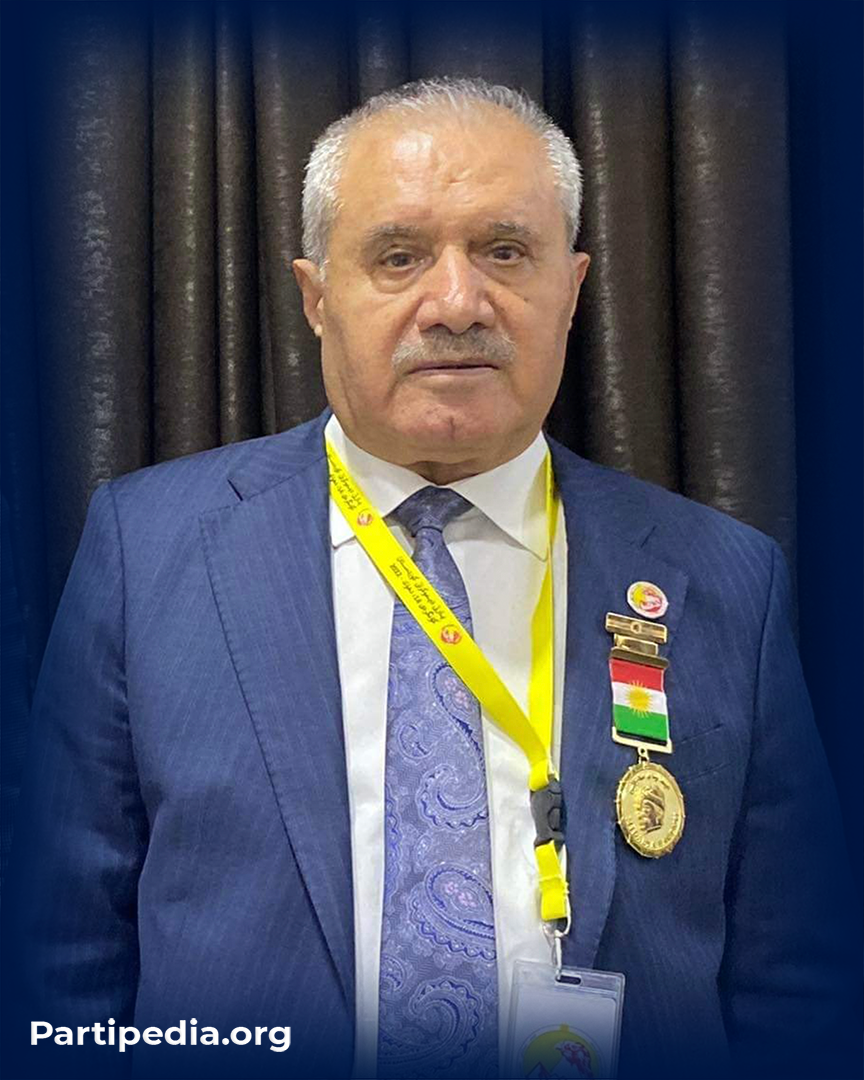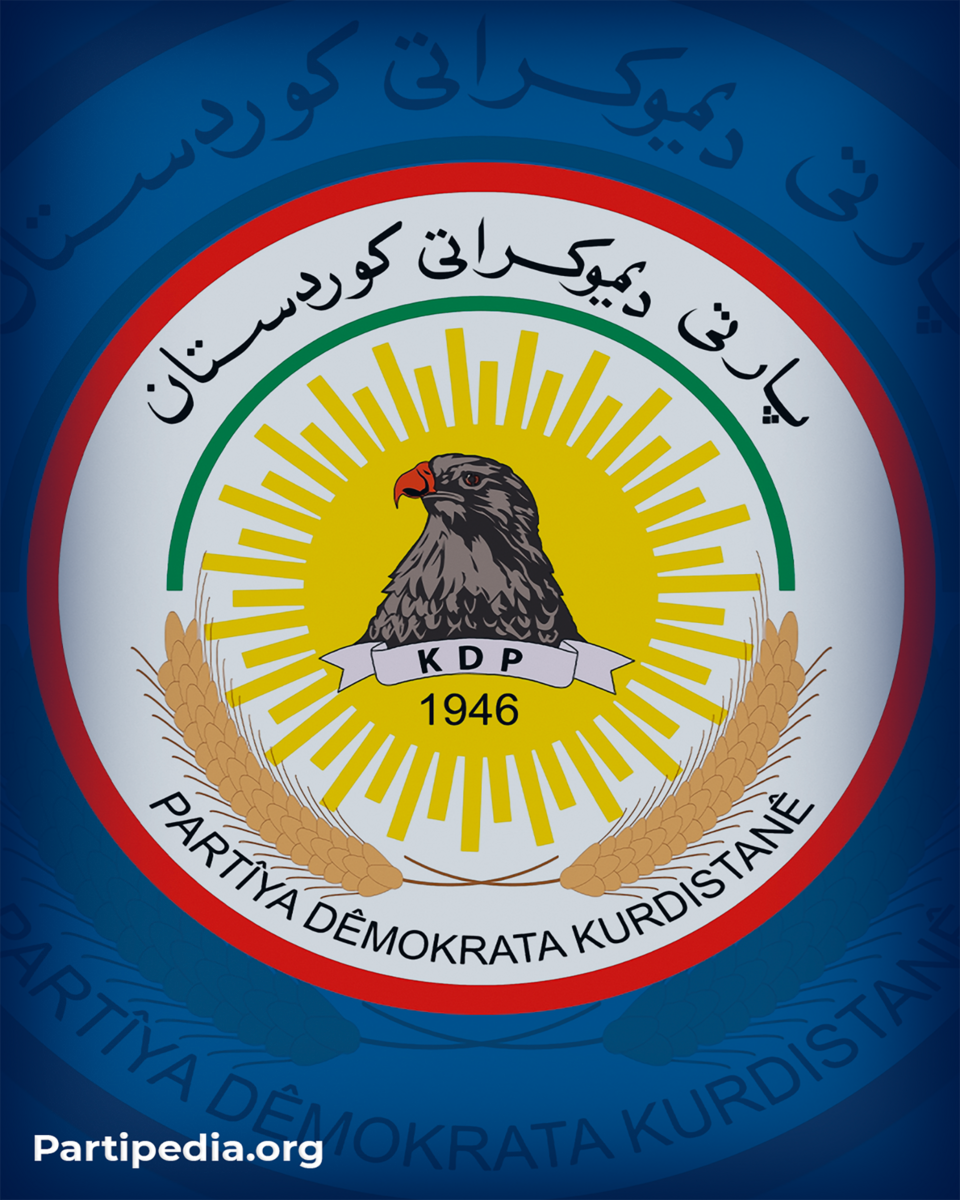Masoud Mustafa Sheikh Mohammed Sheikh Abdulsalam Barzani, also known as (President Masoud Barzani, Mr. Masoud, Uncle, Masrour Barzani's father), joined the ranks of the Kurdistan Peshmerga Forces in 1962. In 1966, he was one of the founders of the Kurdistan Democratic Party (KDP) and later its president. Then in 1970, he was elected a member of the Central Committee of the Kurdistan Democratic Party (KDP) at its eighth congress. He was chosen by Mustafa Barzani in 1975 to restructure the PDK. Moreover, he was a founder of the interim government and a driving force behind the Gulan revolution.
In 1979, he was elected as the KDP’s leader at the ninth congress. After that in 1988, he was appointed as the leader of the Kurdistan Front and led the 1991 Kurdistan Spring Uprising. He was elected as the president of the Kurdistan region in 2005. Furthermore, in the presidential election held on July 25, 2009, he was re-elected as President of the Kurdistan Regional Government (KRG). In 2014, he was the field commander of the organization against the terrorist group ISIS. He was in charge of implementing decisions and overseeing the Kurdistan Regional Government's referendum in 2017, during which 93% of voters supported Kurdistan's independence. In order to represent the legitimate voice of the Kurdish people, he traveled to international conferences and the palaces of Arab and other world leaders. He declined to extend the Kurdistan Regional Government (KRG) presidency's term in late October 2017, resigned, and declared he would continue to serve in the Peshmerga. He is currently in charge of Barzani's headquarters and the Kurdistan Democratic Party (KDP).
His Leadership of the Kurdistan Democratic Party:
In 1970, Masoud Barzani was elected a member of the Central Committee of the Kurdistan Democratic Party (KDP) by 429 votes out of 488 at the 8th Congress. Then at a general assembly in Eastern Kurdistan in 1979, he was elected to serve as the KDP's interim leader. Moreover, In the ninth congress (1979), the 10th congress (1989), the 11th congress (1993), the 12th congress (1999), the 13th congress (2010), and the 14th congress (2022), he was re-elected as the president of the Kurdistan Democratic Party (KDP).
Duties and Responsibilities:
On May 20, 1962, Masoud Mustafa Barzani enlisted in the Kurdistan Peshmerga Forces to defend the national rights of the Kurdish people, and till now he is still a Peshmerga. Then, He assumed control as the KDP's interim leadership on April 15, 1975, and began the process of reorganizing the KDP organizations following the failure of the Aylul Revolution. Masoud Barzani oversaw the Gulan Revolution on May 26, 1976, and carried on with his armed and political struggle. He commanded and took part in most of the battles, both directly and indirectly, and he additionally safeguarded Kurdish territory. Moreover, He was appointed to be a member on the Iraqi Transitional Government Council's (Transitional Governing Council) Presidency on July 13, 2003, and in April 2004, he was elected to lead the council. On June 12, 2005, he was elected as the first president of the Kurdistan Region by the Kurdistan National Assembly, and on June 14, 2005, he swore an oath as the first president of the Kurdistan Region in the Kurdistan National Assembly.
Life and stages of education:
Masoud Mustafa Barzani was born on August 16, 1946, in Mahabad, Eastern Kurdistan, during the Kurdistan Democratic Republic. He was the son of General Mustafa Barzani. He spent 12 years apart from his father as a result of the fall of the Kurdistan Democratic Republic in Mahabad and his father Barzani's refuge in the Soviet Union. Then he enrolled in the village of Napakhi's primary school in 1953. After that, he successfully finished primary school in 1958 and went on to attend Western Central School in Baghdad.
In 1958, he met his father, President Mustafa Barzani, for the first time at Baghdad's Musana airport. In April 1959, he joined Iraqi Prime Minister Rukan Abdulkarim Qasim and President Mustafa Barzani at the People's Hall in Baghdad for the ceremony marking the return of Barzani's comrades from the Soviet Union. Moreover, on May 20, 1962, he joined the Kurdistan Peshmerga Forces. He speaks Kurdish, Arabic, Persian and English.
Masoud Barzani’s Participation in The Aylul Revolution:
Masoud Barzani has been involved in armed and political struggle for his people since his youth. His worldview was shaped by the liberation philosophy of his family. In 1962, he joined the ranks of the Kurdistan Peshmerga Forces and a year later participated in the general meeting of Koya. Furthermore, in 1964 and 1966, he participated in the 6th and 7th Congresses of the Kurdistan Democratic Party (KDP) as a guest. After that, he was chosen to serve as the deputy commander of Barzani's headquarters in 1966. He joined the Executive Office of the Kurdistan Revolutionary Leadership Council's Foreign Relations Committee and the Executive Office of the September Revolution Leadership Council's Security Committee in the same year. In 1967, he founded the Security and Revolutionary Intelligence Agency, known as the Protection Agency, and in 1969, he oversaw the Aylul Revolution Protection Agency, In 1970, Masoud Barzani was elected a member of the Central Committee of the Kurdistan Democratic Party (KDP).
He took part in the defense against the terrorist assault by the Iraqi General Security Agency and a group of Iraqi Arab mullahs on President Mustafa Barzani's meeting location on September 29, 1971. He helped thwart an attempt on President Barzani's life that was planned on July 15, 1972, by the Iraqi Interior Minister and the Director General of Public Security. He joined the Aylul Revolution's Military Planning Committee on December 4, 1975.
Masoud Barzani’s Participation in The Revolution of Gulan:
When the Aylul Revolution failed on March 26, 1975, Masoud Barzani fled to Iran. At a gathering outside Naghdeh on April 15, 1975, he established the Kurdistan Democratic Party's (KDP) interim leadership and restructured the Kurdistan Peshmerga forces. Furthermore, he commanded the Dastan of Khawkurk in the province of Erbil in 1988.
Supervising the Kurdistan Uprising:
The Kurdistan National Assembly and the Kurdistan Regional Government were established as a result of a speech given by Masoud Barzani, the leader of the Kurdistan Front in 1991, about elections and an institutional state. Moreover, as a commander, he took part in the battle of Korê in April 1991 and prevented the Iraqi army's advance. He was appointed Chairman of the Kurdistan Presidency Council on December 22, 2007. After that, he was re-elected as the Kurdistan Region's president for the second time on August 20, 2009.
Peaceful Actions and Endeavors
On December 12, 1970, Masoud Mustafa Barzani welcomed Iraqi Vice President Saddam Hussein, who had come to discuss autonomy for Southern Kurdistan, close to the town of Ruandz in the province of Erbil. Furthermore, he took part in the Kurdistan Democratic Party (KDP) delegation that signed and proclaimed the March 11 Agreement for the Right of autonomy for Kurdistan on March 11, 1970. Then, he visited Kirkuk on June 2, 1970, and proclaimed it to be a Kurdish city, upsetting the Iraqi government.
In the village of Dilman on October 15, 1970, he welcomed the Ibrahim Ahmad-Jalal Talabani group's leaders. In order to coordinate and work together between the interim leadership of the Kurdistan Democratic Party (KDP) and the Patriotic Union of Kurdistan (PUK), he and Jalal Talabani (1933-2017) signed a contract in London on October 16, 1976. In order to defend the highest interests and unity of the Kurdish people, he traveled to Damascus on December 19, 1976, where he met with Syrian officials and later Jalal Talabani. He met with Talabani on May 1, 1977, in Damascus again where they signed an agreement to end hostilities between the PUK and KDP and to cooperate in a number of fields.
On November 28, 1980, on behalf of the Kurdistan Democratic Party, he signed an agreement with the Iraqi Communist Party and the United Kurdistan Socialist Party to cooperate together. Then, he met in Tehran in the middle of August 1986 with Mohammad Baqir Hakim, the head of the Supreme Council of the Islamic Revolution in Iraq, and they talked about the creation of an Iraqi front. After that, he visited the Patriotic Union of Kurdistan (PUK) headquarters on March 7, 1990, with a delegation from the Kurdistan Democratic Party (KDP), where he was greeted by Nesrin Mustafa Amini, a PUK leadership figure. Moreover, he supervised a significant gathering of the Kurdistan Front from March 8–10, 1990.
He led the Kurdistan Front delegation to the second round of talks with the Iraqi government on April 20, 1991. He supervised a sizable Kurdistan Front gathering on April 7, 1992, in Pirmam in order to organize for the elections for the Kurdistan National Assembly. Moreover, he received 446,819 votes, or 47.51% of the vote, in the election for the head of the Kurdish liberation movement on May 19, 1992, but this position was not filled as a result of post-election issues. Furthermore, he hosted the Iraqi Opposition Congress in Pirmam from October 27 to October 31, 1992.
On November 9, 1994, he attended a joint meeting of the Political Bureau of the Kurdistan Democratic Party (KDP) and the Patriotic Union of Kurdistan (PUK) at the headquarters of Jalal Talabani's secretariat in Erbil with the intention of solving the problems and being at ease with each other. Also, He supervised the signing of the Patriotic Union of Kurdistan (PUK) and Islamic Movement in Iraqi Kurdistan's peace accord on February 17, 1994. Then, he supervised the signing of the Patriotic Union of Kurdistan (PUK) and Islamic Movement in Iraqi Kurdistan's peace accord on February 17, 1994. After that, he had a meeting with Abdullah Ocalan in Damascus in 1996. Furthermore, On September 17, 1998, he signed the Washington Peace Agreement with Jalal Talabani (1933-2017), Secretary General of the Patriotic Union of Kurdistan (PUK) in the presence of US Secretary of State Madeleine Olbright.
He was chosen to join the Monitoring and Monthly Committee of the Iraqi Opposition Congress during the London Congress, which took place between December 14 and 16, 2002. He supervised the Salahuddin Congress for the Iraqi Opposition in 2003 because he made the decision to topple Saddam Hussein's government. Moreover, he led a delegation to the Baghdad Congress on April 28, 2003, to implement the decisions made at the London Congress, recognize Kurdish rights, and establish a government.
On November 18, 2004, he attended the Dukan Congress of the Iraqi Opposition to discuss the electoral process, the imposition of security and the trial of Saddam Hussein. Then, on December 1, 2004, he and Jalal Talabani signed a strategic agreement on national issues between the Kurdistan Democratic Party (KDP) and the Patriotic Union of Kurdistan (PUK) in Pirmam, Erbil province.
Kurdistan Democratic Party (KDP) and Patriotic Union of Kurdistan (PUK)
On December 21, 2006, he signed the merger of the two administrations of Erbil and Sulaimani with Jalal Talabani in the Kurdistan National Assembly to form a unified government. He also signed a strategic agreement with Jalal Talabani, on July 27, 2007.
On December 10, 2019, he welcomed a delegation from the leadership of the Kurdish National Council in Syria (Anakasa) at his headquarters and supervised over discussions between the Anakasa and Tavdam in Erbil and Duhok.
Discussions on developing a permanent Iraqi constitution:
On September 11, 2003, President Masoud Barzani welcomed US Governor Paul Bremer and his accompanying delegation in Pirmam. Moreover, they discussed the rewriting of the constitution and ensuring the Kurdish national rights in this constitution. Then, on May 14, 2005, he met with Dr. Adel Abdul Mahdi, Vice President of the Federal Republic of Iraq, and they discussed the issues of the constitution. After that, On May 24, 2005, he met with Iraqi Defense Minister Saadoun Dlimi and discussed the rebuilding of the Iraqi army. On Friday, June 3, 2005, he welcomed Dr. Hachim al-Hassani, Speaker of the Iraqi Federal House of Representatives.
On June 17, 2005, he was welcomed in Baghdad by Jalal Talabani, President of the Federal Republic of Iraq, and Dr. Ibrahim Jaafari, Prime Minister of the Federal Republic of Iraq; They discussed the writing of the Iraqi constitution and respecting the rights of all communities.
Field commander of the anti-ISIS campaign:
Following the terrorist organization ISIS's attacks on the Kurdistan Region in August 2014, Masoud Mustafa Barzani assumed command of the Kurdistan Armed Forces. He was in charge of the liberation of the Rabia Plain and Mount Sinjar from ISIS forces on December 20, 2014.
He met with Canadian Prime Minister Stephen Harper on May 2, 2015. Then, on Monday, August 24, 2015, he met with Norwegian Foreign Minister Borg Brende and Norwegian Defense Minister Ina Eriksen Surid, during which they discussed the fight against ISIS and Peshmerga training. Furthermore, on November 13, 2015, he commanded Peshmerga forces to liberate Sinjar from ISIS forces. On October 27, 2015, he met with Ms. Orsola Vonderline, the Federal Republic of Germany's Minister of Defense.
Assassination attempts on Masoud Barzani
Masoud Mustafa Barzani survived an assassination attempt on December 8, 1979, in Vienna by the Iraqi intelligence agency. He was later supported by the Austrian government and Yasser Arafat, leader of the Palestinian Liberation Movement.
Attitudes and Countermeasures
Masoud Barzani opposed the Turkish army's intervention in South Kurdistan in 2003 under the guise of destroying Saddam Hussein's regime. Moreover, following the movement of Iraqi Prime Minister Nuri al-Maliki's Operation Tigris forces into Kurdistan, Masoud Barzani, commander of the Kurdistan Armed Forces, ordered the defense and deployment of his forces in Kirkuk. After Baghdad cut the Kurdistan Region's budget in 2014, he ordered the export of Kurdistan's crude oil to pay the salaries of the Kurdistan Peshmerga forces and civil servants.
He presented the Kurdistan Independence Project to the Kurdish Parliament in 2014. Then, on June 7, 2017, he met with all Kurdish parties in the Kurdistan Region to discuss the upcoming referendum on independence. On September 25, 2017, 93% of Kurdish citizens voted "Yes" and supported Kurdistan's independence. However, it was hindered on October 16, 2017, by the betrayal of a PUK leadership, and a part of Kurdistan was sold. Then, on October 20, 2017, as the commander-in-chief of the Kurdistan Armed Forces in Prde, Telsquf, Mahmudiya-Sahela, he fought against the militias of Hashd al-Shaabi, Lebanese Hezbollah, the Iraqi army and the Iraqi Federal Police. The enemies were armed with heavy US weapons, which was previously given to the Iraqi army to fight ISIS, and their goal was to capture the capital of the Kurdistan Regional Government and bring Kurdistan’s existence to an end.
Due to the emergency situation in the Kurdistan Region and the expiration of the legal term of the Kurdistan Region's presidency on October 29, 2017, the Kurdistan National Assembly decided to extend the President of the Kurdistan Region's term of office. He presented the Council with his powers, which would be legally granted to the Kurdistan Council of Ministers. Then, he openly declared himself a Peshmerga and stated his willingness to fight on the front lines of any attack.
Diplomatic Relations
When Masoud Barzani joined the ranks of the revolution, he quickly demonstrated his ability and loyalty to everyone. With each task assigned to him, he reaffirmed his trustworthiness to those around him more than ever, which motivated him to continue taking on greater responsibilities, regardless of age. Furthermore, one of the primary obligations that fell to him at a young age was diplomatic relations. Moreover, communications work has been a significant part of his life and struggle.
Relations are a vital aspect of any political party's work program, and he has taken this aspect into account while serving as a Peshmerga. He has visited various Arab and international presidents, congresses, and parliaments for this purpose. He has also personally welcomed them to his offices.
Sources:
ئهرشیفی دهستهی ئینسكلۆپیدیای پارتی دیموكراتی كوردستان




